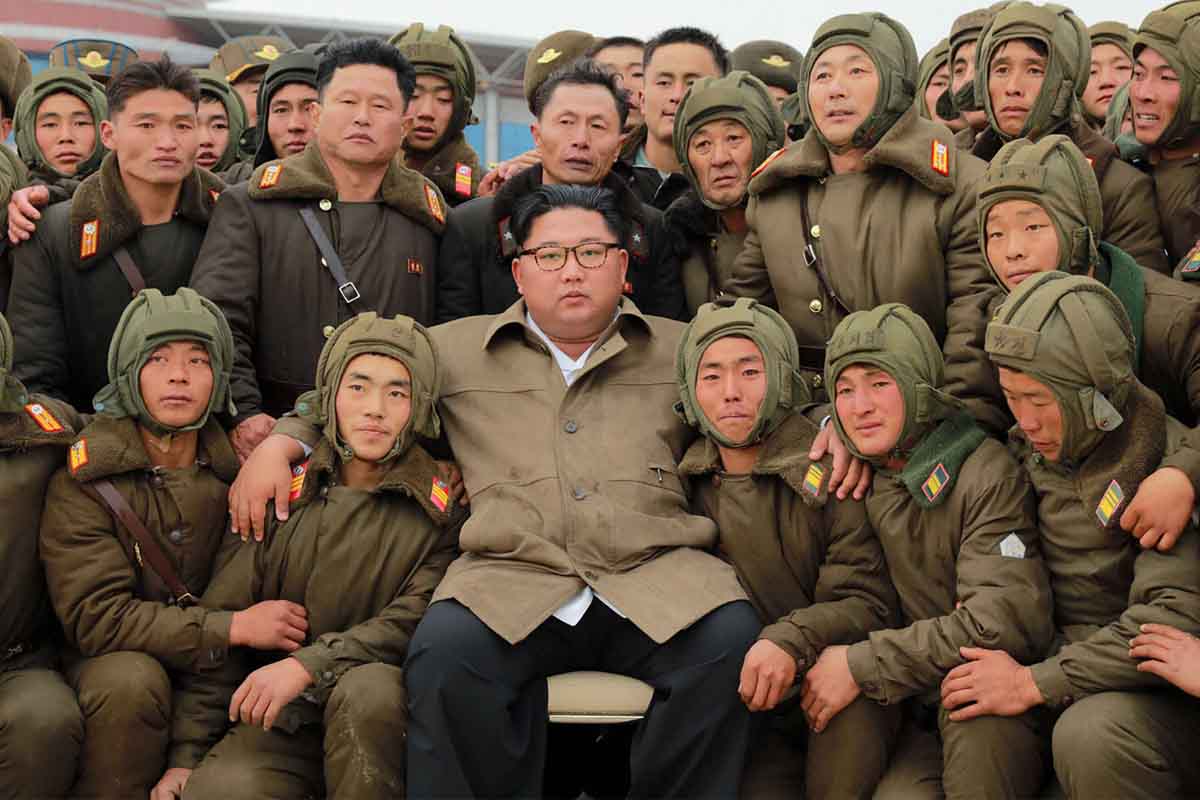North Korean soldiers heading to fight in Europe? It's one of those headlines that sounds almost unreal, yet here we are. While we know that somewhere between 10,000 and 12,000 North Korean troops are training in Russia, with some already in Kursk Oblast, almost everything else about this bizarre situation remains a mystery.
The big questions on everyone's mind:
- Are these troops just cannon fodder, as the Wall Street Journal suggests, or could they actually be game-changers on the battlefield?
- What's in it for Kim Jong-un, and why would Russia take the risk of bringing foreign troops into an already messy war?
- And let's not forget the human side: what's going through the minds of these North Korean soldiers? How do they feel about potentially fighting in Ukraine?
To get some answers, we turned to someone who really knows his stuff—Matt Brazil, a Jamestown Foundation Research Fellow. With decades of experience in East Asian counterintelligence, service as a US Army officer and diplomat, and expertise in modern Chinese history, he helps us understand how the military ambitions of Moscow and Pyongyang have suddenly collided with European security.

Q: Is it a big deal - North Korean troops in Ukraine?
A: It's a significant development that historians will likely mark as a turning point. North Korea has sent workers to Russia and China before. They also send their hackers overseas, but sending their soldiers to fight somewhere openly in uniform is unprecedented.
Q: I didn't realize they had such a large army - one of the biggest in the world with over a million troops?
A: While they're large, China still has the biggest army. What's notable is who they're sending - the Storm Force, an elite special forces unit. Their predecessors attacked South Korea's presidential residence (the Blue House) in 1968, attempting to assassinate President Park Chung-hee. They're deploying in limited numbers - likely one brigade, which in the Korean People's Army means about 5,000 to 7,000 troops.

Q: Do you think it will make any difference on the battlefield? A brigade or two is not a big number.
A: The numbers may be small, but these aren't ordinary troops - they're special forces. Unlike the conscripts used as cannon fodder, these soldiers will likely be deployed for precise, effective operations rather than wasteful charges. So yes, there could be some impact on the battlefield.
There's been speculation that Kim Jong-un wants technology in return or money that he and his cronies can use to line their pockets in part and assist their nuclear and missile programs. But it wouldn't seem likely that Kim Jong-un would agree to throw his elite troops into a meat grinder for those things. The other thing he wants is for his forces to have actual combat experience.
Q: But they haven't fought a war in 70 years. Are they capable militarily?
A: That's exactly what everyone's wondering. Their actual combat effectiveness is completely unknown, so all eyes will watch how they perform when deployed.
Q: What might North Korea get from Russia in return for the weapons and troops?
A: While Russia might be hesitant to share nuclear weapons technology, they could offer missile technology and guidance systems. The North Koreans are particularly interested in two aspects of nuclear capability: explosive yield and miniaturization - specifically MIRV technology that allows multiple warheads on a single missile.
But here's the key point: China must be involved in these negotiations. Without its oversight, Beijing wouldn't allow Russia and North Korea to make deals that could destabilize East Asia. If these arrangements were made without Chinese knowledge or approval, the Russia-China-North Korea alliance would be seriously strained. This is bigger than just a bilateral deal—it's about regional power dynamics.
Q: What other dangerous technologies, besides nuclear, might Russia give to North Korea?
A: Missile technology is the main concern. Russia might also provide battlefield equipment like drone technology and two-way radios - areas North Korea has historically struggled with.
North Korea actually has better access to advanced electronics through China. Since about 2000, they've been getting consumer technology - computers, chips, laptops - through their border with Northeast China. At the Pyongyang trade fair, which happens twice a year, you can see this clearly - people wearing Intel Inside t-shirts at sales booths and selling Dell laptops and Taiwanese-made computers. This Chinese technology is more sophisticated than what Russia could offer.
Russian electronics aren't very advanced - their state-owned and state-affiliated companies produce technology far behind what you'd see in the West. So, from Russia, we're really looking at tactical weaponry and military equipment rather than advanced electronics.
Q: Do North Koreans want to fight in Ukraine?
A: That's a crucial question. I've observed North Korean behavior firsthand at the border city of Dandong, where China meets North Korea. What struck me was their response to provocations - when tourists on our boat taunted them, they just took the cigarette out of their mouth, threw it down the ground, and walked away. No patriotic displays, no slogans praising Kim Jong Un. Just quiet indifference.

Recent reports of 19 North Korean soldiers allegedly attempting to desert in Russia's Kursk Oblast hint at potential morale issues. However, we shouldn't jump to conclusions about widespread dissent. The North Korean military is known for its merciless discipline, which will likely keep their forces in line. While we might see individual defections, I don't expect entire units to switch sides.
Q: Can Ukraine or its allies influence these North Korean soldiers in any way?
A: One effective strategy could be getting the South Koreans over there with their loudspeakers and pop music to broadcast to the Russian/North Korean side with appeals to defect.
Q: There are reports that families of North Korean soldiers in Russia are being kept in isolation to prevent defections. Is this credible?
A: Absolutely. This is standard practice both in North Korea and China - keeping families under surveillance when someone goes overseas. However, history shows us that some North Korean defectors have chosen to escape despite these risks to their families, whose fates remain unknown.

Q: Russia seems to be taking major risks by bringing in North Korean troops, with questionable benefits. What's their reasoning?
A: While it might seem puzzling, this move serves several strategic purposes. It's partly about implementing their June treaty with North Korea, but more importantly, it's Russia sending a message: they'll do whatever it takes to win in Ukraine.
This also sets a precedent for future military partnerships, particularly with China. Russia is essentially signaling to the world that Moscow will back Beijing in whatever it feels like doing over the next several years along the Chinese periphery. So, it's a message from Russia to the world that Russia will assist China in anything.
Q: Where does China fit into this Ukrainian scenario?
A: China's goals are multilayered. They want to weaken the US-led international order and prevent NATO from getting involved in Asia. This aligns with their long-term objectives: take over Taiwan, dominate the South China Sea, and secure shipping lanes there in case of war. Supporting Russia in Ukraine helps undermine NATO, which serves these broader aims.
But here's the irony - this strategy could backfire. Having North Korean troops near European borders might actually strengthen NATO rather than weaken it because if there's one thing that people don't want to see on their borders, it's North Korean troops, not to mention Russian troops. It could even push South Korea to increase support for Ukraine. It's a dumb move, but they look at things differently than we do.
Read more:
- WSJ: North Korea sends young, inexperienced, malnourished soldiers to Russia to test ground in Ukraine as “mere cannon fodder”
- Zelenskyy: North Korean troops will join Russia’s war against Ukraine on 27-28 October
- Scholz: No immediate NATO invitation for Ukraine during wartime, supplying Tauruses “wrong”
- Kyodo: 2,000 North Korean soldiers move to Russia’s Kursk Oblast near Ukraine, Ukrainian military source says
- Ukrainian intelligence: Russian forces assign an interpreter for every 30 North Korean soldiers
- Western weapon use restrictions for Ukraine are “militarily silly and strategically stupid,” Mike Pompeo says
- China claims no knowledge of North Korean troops in Russia as EU condemns the deployment

